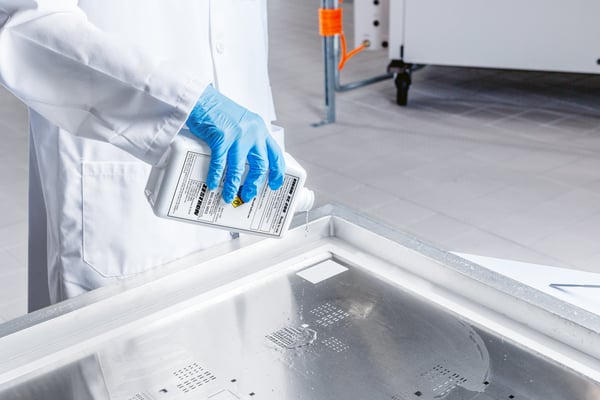We use tools. Doing so separates us from the animals - Ok, well some animals. Building a house, changing the oil on a car, and making mirepoix all require tools. Over time, tools get dirty or worn out and need maintenance. Your knife should be cleaned each time you use it in the kitchen. The socket wrench you used to remove the oil drain plug from your engine is going to need to be cleaned off if you’re going to use it on anything else.
PCB manufacturing is no different. With any type of manufacturing process automation, there are tools that are going to get dirty. Tools that are unclean and not well maintained can lose effectiveness. They can even become damaged or damage PCB assemblies in the process.
Are you using a stencil to print solder paste on the PCB? The squeegees used to press the solder paste through the stencil, if dirty, may apply uneven pressure resulting in incomplete paste application on the board.

Are you using a reflow oven for reflow soldering of your SMT assemblies? Accumulated flux and gas emissions generated during the reflow process deposit on the oven walls and cause uneven heating profiles.
How about wave soldering? Solder pallets? Condensation traps? Adhesive dispensing needles? Pick & place nozzles? I could go on all day, but the common thread is: tools get dirty and they work better when they are clean.
As is often the case in our blog, this raises the question of how best to clean your tools. Water is a start, but that only works when the contaminants are water-soluble. So, if you are trying to clean pastes and fluxes that do not dissolve in water, you’re out of luck. And forget about oil-based contaminants, water alone won’t be able to remove them.
Isopropyl Alcohol (IPA) is an option. Though it’s inexpensive and ubiquitous, it’s not necessarily the right choice in all situations. Heat generally helps cleaning processes – along with chemical and mechanical energy. For instance, a reflow oven doesn’t come with a “self-clean” mode as your kitchen oven does. But if it is warm from use, you cannot apply IPA because the heat may cause the IPA to ignite and cause damage to your property or person.
Water-based cleaning chemicals can be applied to equipment and tools that are still warm for more effective cleaning without the flashpoint risk. They can also be formulated to target the specific contaminants that you are trying to remove from your tools.
Your process priorities will help shape the best option for the maintenance of your tools. Working with skilled and knowledgeable process engineers can help you find the best solution for tool maintenance needs.
_1.png)


